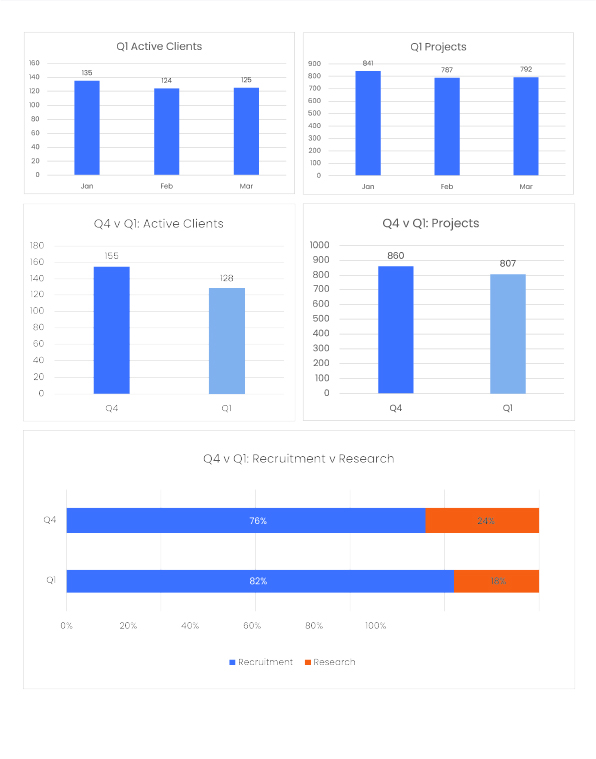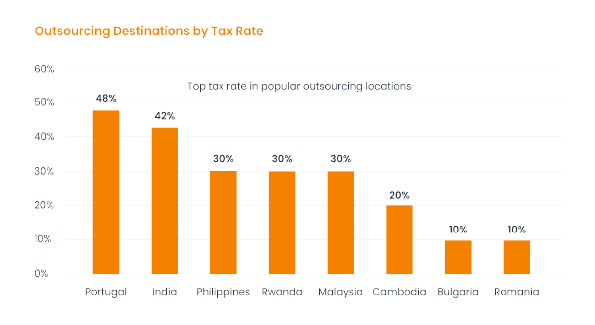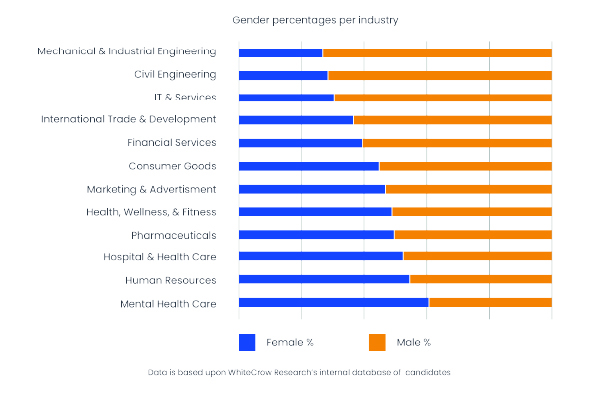Do you know what I mean?
What’s in a word?
Last month, we completed a survey for
a well-known investment bank which
was trying to understand how its brand
is perceived across a particular
candidate pool.
The feedback was great, with
sources especially praising the bank
for its culture.
But here’s the odd thing. When we asked
those same sources what they particularly
liked about the bank, their answers largely
focused on performance-related
attributes. Our client was variously
described as “successful”, “global”, “top
tier”, “aggressive”, “stable”, “too big to fail”
and “excellent”.
While all these things might be true, they
hardly describe what most recruiters think
of as ‘culture’. Usually, the word is used to
signify such things as diversity, inclusion,
work/life balance, corporate purpose,
collaboration, teamwork and mentoring.
If a company exhibits these qualities in
large measure, it is deemed to have a
“good” culture; if it doesn’t, it’s reckoned
to have a “bad” culture.
But suppose – as our survey suggests –
some people are using the word quite
differently?
For example, it could be that male tech
workers prefer to work from home, while
female consumer goods professionals
prefer to go into the office. These are
contradictory positions, but both
cohorts would describe their preferred
working arrangement as constituting
good ‘culture’.
The challenge for TA teams then is to
understand candidates as individuals.
This requires large levels of engagement
and a forensic approach to language. Too
often recruitment gets bogged down by
jargon or buzzwords which obscure the
huge variety of candidate attitudes. As a
result, TA strategy ends up being based
on wrong assumptions and unproven
theses. Conversely, by taking the trouble
to find out how candidates think,
recruiters can devise smarter, better
benchmarked (and far more successful)
programmes of activity.
And it all begins by taking a closer
look at how people define and deploy
our species’ most precious commodity:
words.
Our recent whitepaper Is Hybrid Working demonstrated that men are far more likely than women to want to work fully remotely.
The World According to WhiteCrow
As the world’s largest sourcing and recruitment company, WhiteCrow works with clients
across multiple geographies and sectors. So a brief glance at what we’re working on
ought to provide a clue to what’s going on in the wider market…
In the last edition of The WhiteCrow Whisper
we made the following observation: “It
would be naïve to imagine there won’t be
some let up in hiring volumes as the new
year progresses, but our view is that
(fingers crossed!) we’ll continue to see
reasonable recruitment activity across
most sectors and geographies for a little
while longer.” Three months on, we’re
pleased to report that our prediction was
pretty much spot on.
Also, check out our Executive Solutions here.
In Q4, the average monthly number of
active clients was 156 while in Q1 the
corresponding figure was 128. Projects also
dipped from a Q4 monthly average of 860
to a Q1 average of 807.
So yes, there was an undeniable drop in
activity, but it was mostly limited to tech
and financial services and the overall
decline was not precipitously steep. In fact,
a number of sectors actually bounced back
in March, possibly on the strength of
better-than-feared inflation figures and
an expectation that interest rates might
have peaked. For example, projects in
Energy increased by 14.9% between
February and March, while mandates in
Food & Drink almost doubled!
Another metric we like to keep tabs on is
the ratio of research to recruitment
activity. This tells us whether clients are
actively hiring or just pipelining for the
future. Of course, pipelining is always a
sound strategy, but if it forms too large a
percentage of our work, it’s a sure sign that
companies are reining in their recruitment
spend. Actually, though, the data shows
recruitment remaining buoyant. It was
83% of projects in both January and
February and a healthy 79% in March.
Still, these remain uncertain times and the
mini rally we saw in our late Q1 figures
predates the collapse of Silicon Valley Bank
and the drama at Credit Suisse. It would be
foolish to imagine there will not be further
twists and turns as the year progresses.
Also, check out our Article Don’t Worry, Be Happy here.


Know what is Candidate Experience and What Companies Get Wrong!
In Conversation with…
WhiteCrow recently spent some time in the company of Eleni Kitra, founder and CEO of
the Dubai-based consultancy PeopleFirst. The whole interview will shortly be available
via our LinkedIn page, meanwhile, you can check the whole interview on our website here. Also, here are our favourite words of wisdom from this fascinating
diversity expert and thought leader:

Our complete “Resources from Industry Experts” is now available here.
Talentomics
Covid. Inflation. Ukraine. Whatever your view on the big issues of the day, we can all
agree these are unpredictable times. That’s a nightmare for workforce planning. So
now more than ever Talent teams need to be across the numbers. Below, we share a
selection of economic charts and comment briefly on their implications for recruitment.
Outsourcing Destinations by Tax Rate

Read our new article on Who Cares Wins here.
At WhiteCrow Research we do a lot
of location analysis work – that is,
helping companies decide where
to relocate a team or start up a
centre of excellence. Usually, clients
want to know how easy it is to hire
people in any given location, but we
also like to stress the importance of
retention, especially in an
increasingly global economy.
That’s often a function of how much
money workers take home at the
end of the week – and that depends
not just on salary but on tax rate.
Two of the more popular outsourcing
destinations in recent years have
been Portugal and India, so it’s
surprising to see that both have
quite high tax rates. How long before
companies eschew these countries
in favour of lower tax centres like
Bulgaria, Romania or Cambodia?
Check out our Quarterly Published The WhiteCrow Whisper to help you with Recruitment here.
Gender Diversity by Industry

What are they doing in Human
Resources and Mental Health Care that
they’re not doing in Mechanical
Engineering? Whatever it is, it’s driving
up female representation in these
sectors to an impressive degree.
The question is only slightly rhetorical.
Clients are often looking for ways to
improve their diversity statistics but they
seldom commission research to find
out how others have succeeded in
addressing the same challenge.
Surely a great start would be to
interview hiring managers across
gender-diverse sectors and find out
how they developed and implemented
their hiring strategies.
Our graphic only shows selected
industries, of course, but there are some
interesting findings nevertheless. The
40% female representation in
Financial Services is certainly a surprise.
And who knew the Pharma industry
was so well gender-balanced?
Electricity prices & PPP

Why should TA specialists be across
worldwide electricity prices? Well,
because as energy prices rise,
disposable income falls. And that, of
course, means candidates are likely to
demand higher wages…
As our first graphic shows, some of the
highest prices are in precisely
those countries, like Germany and
Denmark, that have invested most
heavily in renewables.
That might seem surprising, but it’s only
half the picture. The price of a
commodity is less important than its
affordability – and that will depend on
average income levels. Our second
chart shows power purchasing parity
(PPP); i.e. the percentage of a day’s pay required to buy a KwH of electricity. Probably worth keeping tabs on as the Ukraine war continues and energy prices remain stubbornly high
Quote of the Quarter
I’VE GOT A TON OF CAPITAL
BUT I CAN ONLY SPEND
IT IN THIS COMPANY
This was said to us by a senior level
consultant at a professional services
firm in New York. It articulates a problem
we touched upon in our recent
whitepaper Don’t Worry, Be Happy –
namely, there are a lot of candidates in
the current market who feel very secure
in their job but far less upbeat about the
wider economy.
Our source felt he was unlikely to be made
redundant because he’d spent the last
seven years demonstrating his value
to the company.
In other words, he had ‘capital’ – but only
as long as he stayed put. Move jobs, and
that store of good will would immediately
reset to zero.

Also, check out our Resources for Employers for Recruitment here.
Wordplay

Understand How you can Be an Agile Shape Shifter while Recruitment here.
demonstrate
/ˌdɛmənˈstreɪt/
Verb
This wouldn’t appear a particularly
contentious word, at first sight. But
suppose you use its past participle and
yoke it to the word ‘experience’? Every
third LinkedIn profile these days boasts
about “demonstrated experience”. What
is the function of this phrase? More
precisely, what meaning does the word
‘demonstrated’ bring to the sentence that
would not have been communicated by
the word ‘experience’ on its own? Are we
to imagine these people have performed
some sort of roadshow where they
showcased a particular skill? Perhaps
they’re software engineers who solved
coding problems in front of a live
audience. Or marketing guys who
delivered quickfire slogans at an ‘open
mike’ event . . .
But let’s be reasonable. Surely
“demonstrated experience” just means
a person can prove they have the
track-record they claim, presumably in
the shape of a resume? But if that’s the
case, it’s hardly worth mentioning.
